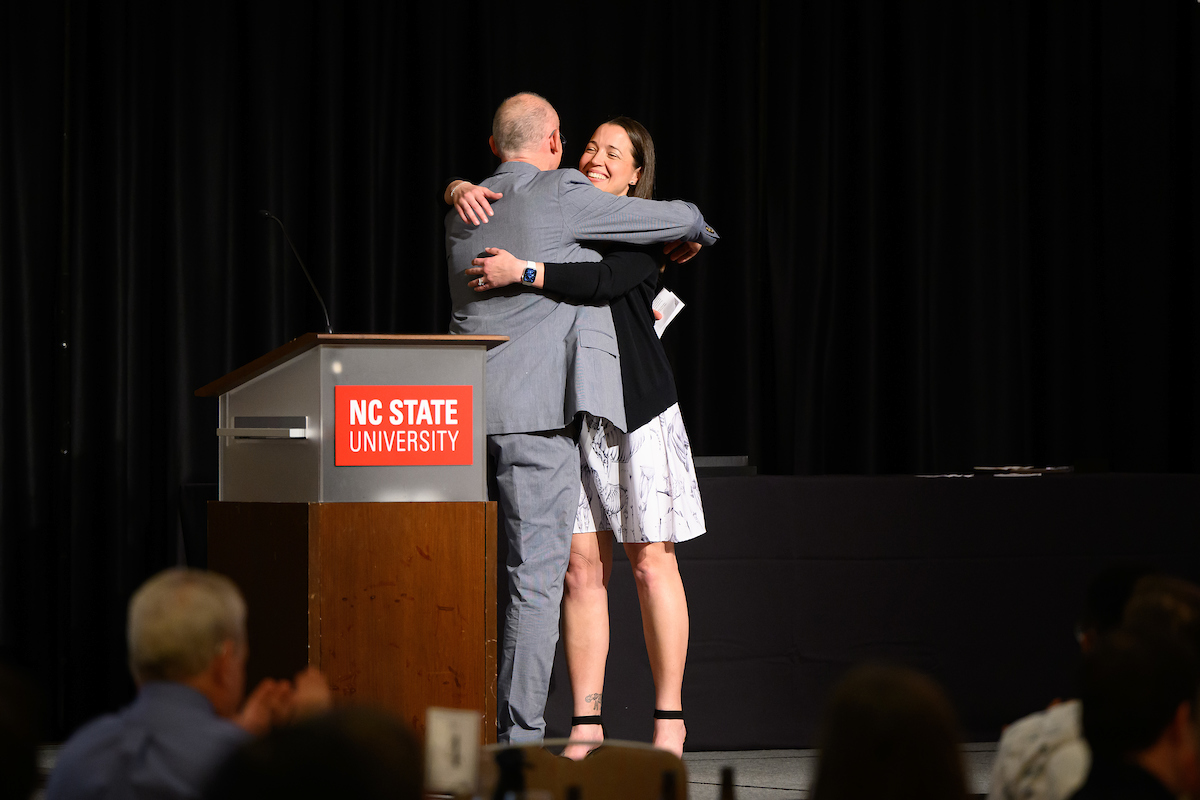Frey Selected For NC State Impact Scholars Inaugural Class

Erin Frey, a research assistant professor at the NC State College of Veterinary Medicine (CVM), has been named to the university’s first-ever class of Strengthening the Impact of Research (STIR) Scholars for her work promoting effective antibiotic stewardship in animals.
Frey, a 2003 CVM graduate, is among 12 NC State-wide faculty and staff selected for the honor. The STIR program encourages researchers to expand their innovative work’s impact through collaboration within the NC State community and aims to strengthen the identities of young researchers. The program is run through the university’s Office of Outreach and Engagement.
“Since joining the university as a postdoctoral fellow in 2019, I have been looking for ways to connect with researchers in other colleges across the university as well as community organizations to broaden the impact of my research,” says Frey. “The STIR program is a valuable opportunity to engage in interdisciplinary collaboration, to learn from mentors doing impactful research and to develop a research project that can focus on its impact on the broader society.”
Frey’s work reflects a major threat to 21st century global health: the rise of antimicrobial resistance in medicine used by both animals and humans. Through her research, Frey hopes to better understand how antibiotics are used in companion animals and refine educational resources and policies promoting antibiotic stewardship — keeping antibiotics available and effective — by animal caretakers and veterinarians.

“Without effective antibiotics, we will lose our ability to cure illnesses caused by bacteria, and the health and welfare of both animals and people will suffer,” Frey says.
Combating antibiotic resistance is a central focus of the CVM’s global health program. The World Health Organization (WHO) has called antimicrobial resistance one of the top 10 health threats to humanity. The CVM is home to two national antimicrobial resistance monitoring systems. In 2020, the college was named a WHO collaborating center to combat antimicrobial resistance, one of 18 such centers worldwide.
Frey first became interested in infectious disease and transmission pathways as a CVM student working in the lab of Ed Breitschwerdt, the Melanie S. Steele Distinguished Professor of Internal Medicine. Later, as a primary care veterinarian in private practice, Frey saw the impact of infectious disease, including antibiotic-resistant infections, on her patients, inspiring her to promote animal wellness and client education about preventative health behaviors.
In 2018, Frey earned a master’s in public health from the University of North Carolina at Chapel Hill’s Gillings School of Global Public Health, where she dove deeper into health promotion policy and the impact of health inequity on animal and human health. In fall 2018, UNC and the CVM launched a joint master’s of public health with global health emphasis program.
Frey says that through the STIR program she has already begun to connect with colleagues throughout NC State, including those trained in educational theory, health literacy and outreach to non-scientific communities. Such collaboration is vital to Frey’s work — addressing a complex problem that demands innovative solutions.
“Leaders across campus are contributing their expertise to this program,” says Frey. “I am grateful that the university has prioritized its resources toward helping our scholars with outreach and community engagement.”
~Jordan Bartel/NC State Veterinary Medicine


